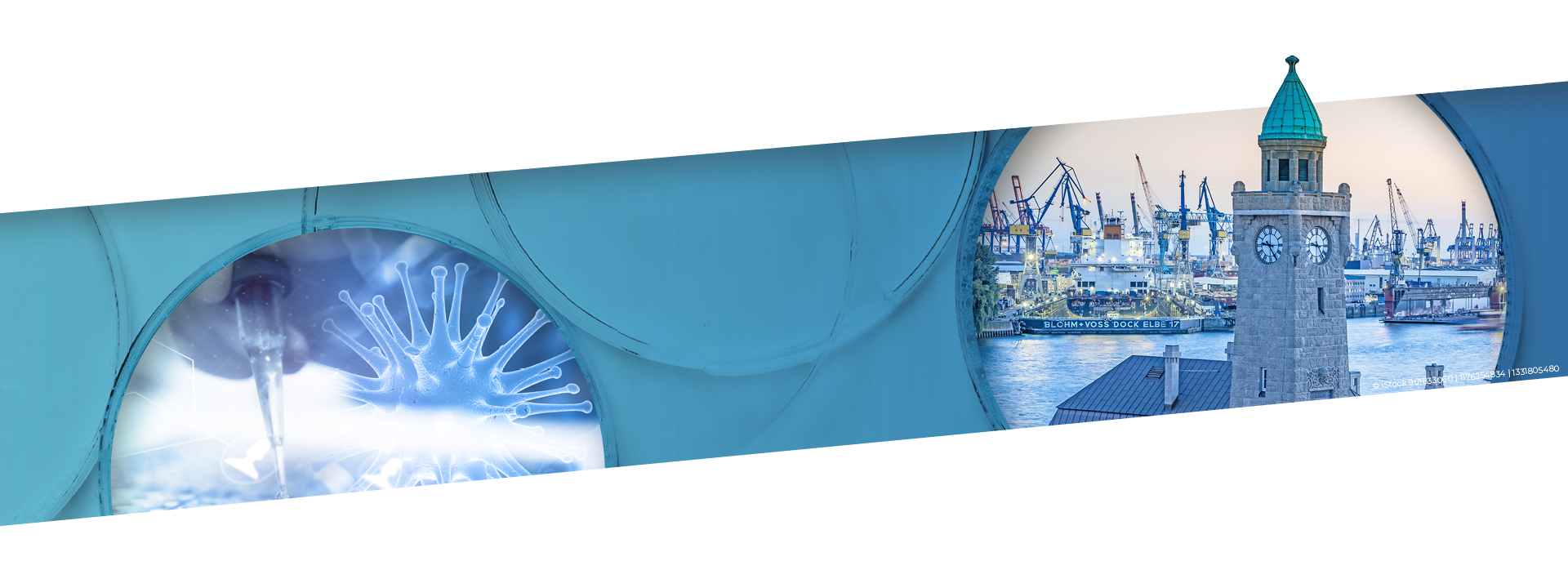
Session 8: Personalized medicine & Digital Health in reproductive immunology & Clinical ESRI Award
08:30–10:30
Chairs: Diao Lianghui (China) & Nandor G Than (Hungary)
08:30–08:55
T cell immunopathology in women with reproductive failures; causes and treatment
Joanne Kwak Kim, Rosalind Franklin University (USA)08:55–09:20
Pre-conceptional Endometrial Immune Profiling: A Personalized Approach to improve pregnancy Rates in Good Prognosis IVF/ICSI Patients – Preliminary Results of a Randomized Controlled Study
Nathalie Ledee, University of Paris (France)09:20–09:45
Menstrual blood; a powerful tool for reproductive immunology research
Renate van der Molen, Radboud UMC (Netherlands)09:45–09:55
Evolutionary Changes in the Zinc Finger 554 (ZNF554) Locus in Anthropoid Primates: Implications for Deep Placentation and Preeclampsia
Orsolya Oravecz, Research Centre for Natural Sciences (Hungary)09:55–10:05
Uterine Natural Killer Cells Modulate Endometrial Growth and Persistence in Endometriosis
Maïgane Diop, Stanford School of Medicine (USA)10:05–10:15
Identifying the nature of Tregs in human pregnancy
Lotte Verleng, Leiden University Medical Center (The Netherlands)10:15–10:25
The immuno-regulatory activity of placentally secreted pregnancy-specific glycoprotein (PSG)-1
Gabriela Dveksler, Uniformed Services Univeristy of the Health Sciences (USA)
10:30–11:00 Coffee Break
Session 9: Male reproductive immunology
11:00–13:00
Chair: Sarah Robertson (Australia) & Maciej Kurpizs (Poland)
11:00–11:25
Unveiling the immune shield: a dive into testicular and epididymal immunology
Andreas Meinhardt, University Giessen (Germany)11:25–11:50
SARS-Cov-2 infection versus vaccination and its influence on reproductive success; male/female story
Maciej Kurpisz (Poland)11:50–12:15
Seminal fluid and the female immune response – an update on the male contribution to pregnancy beyond fertilisation
David Sharkey, University of Adelaide (Australia)12:15–12:25
Immunomodulatory potentials of saccharomyces cerevisiae in mitigation of testicular heat stress alterations.
Edmund Mbegbu, University of Nigeria (Nigeria)12:25–12:35
Actually laboratory parameters for prognosis of fertility in varicocele patients
Anna Havrylyuk, Urology of Medical University named Danylo Halytzkyy (Ukraine)12:35–12:45
Abnormalities in B cell subsets and immunoglobulins in patients with premature ovarian insufficiency
Xue Jiao, Shandong University (China)
12:45–12:55
The effect of Calcitriol on the development and implantation capacity of embryos from hyper-stimulated mice
T.J. Csabai- Tanics, University of Pécs (Hungary)
13:00–14:00 Lunch Break
Session 10: Female reproductive immunology & ESRI Basic Science Awards
14:00–16:00
Chairs: Emilia Solano (Germany) & Marie Pierre-Piccinni (Italy)
14:00–14:25
Lineage infidelity underpinningregulatory T cell deficiency in recurrent pregnancy loss
Sarah Robertson, University of Adelaide (Australia)14:25–14:50
Differencies in Treg cell and CD8+T cell characteristics in normal pregnancy, miscarriage and preeclampsia.
Shigeru Saito, University of Toyama (Japan)14:50–15:15
The Role of Neutrophils in Protection Against HIV Infection in the Aging Female Reproductive Tract
Martha Rodriguez Garcia, Tufts University (USA)15:15–15:25
Palmitoylation of CD36 enhances lipid droplet accumulation and M2-like polarization in decidual macrophages at the maternal-fetal interface
Dongyong Yang, Renmin Hospital of Wuhan University (China)15:25–15:35
Maternal derived-galectin-3 impacts on placental-fetal development leading to FGR
Yiran Xie, UKE (Germany)15:35–15:45
Uterine enrichment of CD8+ T regulatory cells throughout pregnancy prevents fetal loss in mice
Lilja Hardardottir, University of Regensburg (Germany)15:45–15:55
Increased NKG2A+CD8+ T-cell exhaustion in adenomyosis
Xue Jiao, Shandong University (China)
16:00–16:30 Coffee Break
Session 11: Sex differences in immune responses including autoimmunity
16:30–18:30
- Chairs: Shigeru Saito (Japan) & Dimitra Zazara (Germany)
16:30–16:55
Sex differences in Immunity
Gabriele Riemekasten, UKSH (Germany)16:55–17:20
Sex differences in HIV-1 disease
Marcus Altfeld, UKE (Germany)17:20–17:45
Sexual dimorphism in the immune system transcriptional response to interferon
Tal Shay, Ben-Gurion University (Israel)17:45–17:55
Immune system adaptation during gender-affirming testosterone treatment
Camila Consiglio, Lund University (Sweden)17:55–18:05
Prenatal androgenization triggered neuroimmune alterations in the fetal ovary and programmed its persisting dysfunction
Maria Victoria Bazzano, University of Regensburg (Germany)18:05–18:15
Fetal sex dependent distribution of decidual immune cells at term
Romy Bezemer, University Medical Center Groningen (The Netherlands)18:15–18:25
Identification of sex-specific altered T cell immunity in response to prenatal stress in a murine influenza A infection model
Pauline Wiemers, UKE (Germany)
VIP Programme
20:00–01:00
Chair: Anke Diemert (Germany)
Networking: about extracellular vesicles, immune cells and students
with Prof. Udo Markert


